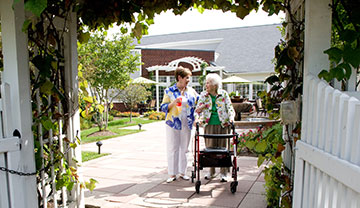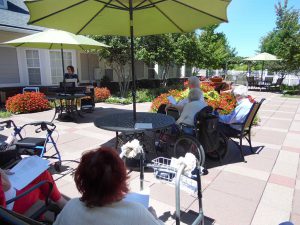
Parkinson’s Disease as it Relates to Dementia
April Is National Parkinson’s Awareness Month. Parkinson’s disease is a chronic and progressive disorder that affects a person’s movement. It often causes recognizable tremors, and can also cause muscles to become rigid making it difficult for people with Parkinson’s to walk or perform other activities of daily life. It occurs most often in people aged 50 and over, but some people do develop what is called early-onset Parkinson’s. Men are more likely to develop the disease than women, and having a family member with Parkinson’s can increase your risk.
While the physical symptoms affecting movement are the first to manifest and can lead to diagnosis, many people with Parkinson’s go on to develop problems with cognitive function, including dementia. Early symptoms of memory loss include difficulty concentrating and forgetfulness, but over time the problems can affect the following:
- Communication with others
- Solving certain types of problems
- Ability to pay attention
- Taking care of one’s self
Doctors do not know why there is a connection between Parkinson’s and dementia, but it has been shown that both the movement disorder and problems with cognition cognitive are linked to changes in the brain.
If you or a loved one has symptoms of Parkinson’s or has been diagnosed with Parkinson’s and is developing symptoms of cognitive impairment, talk to a doctor. The doctor can help determine the best treatment plan to treat symptoms and let you know what to expect.
To learn more about Parkinson’s disease or to find support, visit American Parkinson Disease Association. As always, contact us at Parc Provence for information regarding care for your loved one or to schedule a tour.





